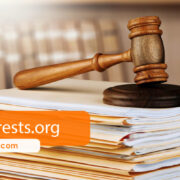A word that nobody wants to hear but something that is often necessary is probate. Probate is a legal process that occurs right after a person holding a will passes away. The process is rather simple but can last for months on end. During this time, assets are validated and authenticated. In addition, the estate of the diseased person will also use this process to settle any debts they may have. As a family member, it is critical that you know the various concepts of probate in order to ensure that both your family member is taken care of and that you are receiving your rightful assets. Below includes four of the most common/important concepts to understand.
Table of Contents
1. The Executor
As stated above, the process of probate involves the authorization, validation, and distribution of assets. The person placed in charge of this is called the executor, aka personal representative. This person was appointed by the holder of the estate at the moment when they crafted their will. In addition to distributing assets, they are also in charge of paying off the estate’s debts (if any).
2. The Beneficiaries
If you’re not the executor but are a close relative to the person who just passed, you may be considered a beneficiary. Beneficiaries are those who are written into the will and promised some part of the estate. However, it must be noted that just because there is a will written with specific people, family members excluded from it do still hold legal ground to challenge the process and receive some portion of the estate. In many cases, this specific action by family members to contest the will is what causes the probate process to go on for months or even years in some cases.
3. The Creditors
Earlier, we commented on how one of the most important jobs of an executor was to pay off any loans that the estate may have at the moment of the holder’s death. Although the responsibility lies on the executor, it is still important to understand just who is receiving the money. These people are called creditors and are often informed of the passing of your relative. Creditors will meet with your family’s personal attorney to discuss how much each creditor will get. This is because sometimes there is simply not enough money to pay off every single debt.
4. The Probate Judge
Last but not least on the list includes the judge themselves. The judge often plays a very small role with little to no interaction with them. However, this is only the case if the probate process runs smoothly. This means that there are no legal documents missing, the executor is doing their job, and no family members are contesting the contents of the will. If issues do arise, a civil court case will open, and the judge will become much more involved in the matter. Of course, this can not only prolong the process but increase the cost of it.
Although there are many more layers to the probate process, the concept listed above is a great foundation for you to build on. For additional information, contact and work with an attorney experienced in family law.









Comments